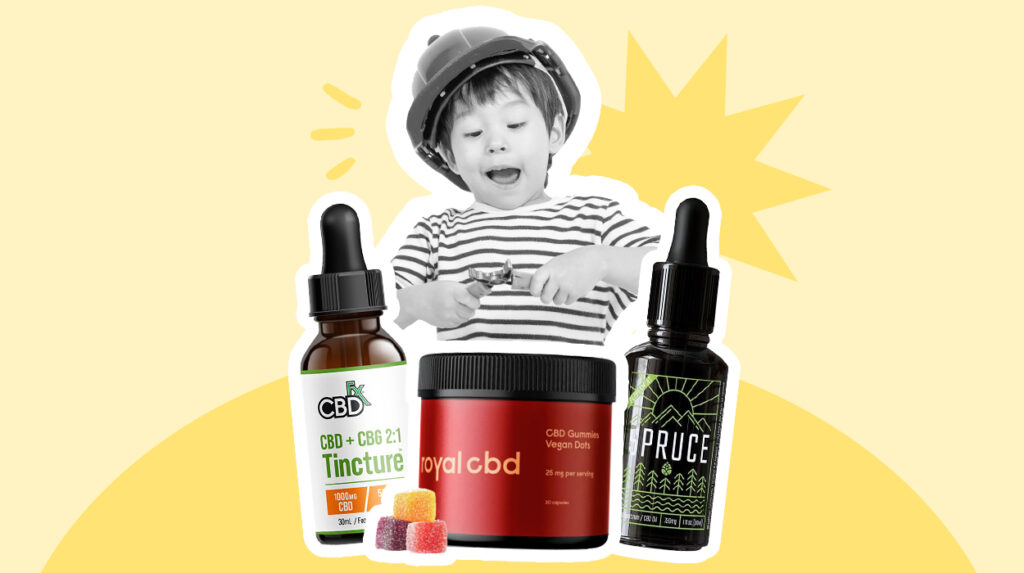
Are you tired of dealing with persistent body odor[1] and looking for a natural solution? Enter the world of armpit detoxes, a trending method that claims to eliminate odor-causing bacteria and toxins from your underarms. But does it really work? In this article, we’ll explore the concept of armpit detoxification[2] and investigate its effectiveness. From natural deodorants and apple cider vinegar to the role of sweat glands and dead skin cells, we’ll uncover the secrets behind these popular remedies. Some claim that an armpit detox can reduce body odor and even lower the risk of breast cancer.
But is there scientific evidence to support these claims? Join us as we dive into the science behind armpit detoxes, exploring the potential benefits and drawbacks. Whether you’re a skeptic or a believer, this article will provide valuable insights into the efficacy of armpit detoxification. Discover whether this practice is worth incorporating into your personal hygiene routine and learn how to make an informed decision about detoxing your armpits.
What Is Armpit Detox?
Armpit detox[3], also known as underarm detox, is the process of cleansing and purifying the armpits to eliminate toxins, bacteria, and buildup from conventional antiperspirants or deodorants. This detox involves using natural ingredients like apple cider vinegar, bentonite clay, or activated charcoal to create a detoxifying mask. The aim is to transition to a natural deodorant and reduce body smells. However, it’s important to note that scientific evidence supporting the effectiveness of armpit detoxes is limited, and it’s advisable to consult with a qualified health provider before undertaking any detox process.
How To Detox Armpit You Should Try?

- Prepare an armpit detox mask: Create a detoxifying mask using natural ingredients like bentonite clay, activated charcoal, apple cider vinegar, or essential oils known for their antibacterial properties.
- Apply the mask: Gently apply the armpit detox mask to dry armpits, ensuring even coverage. This allows the ingredients to work on eliminating toxins and bacteria.
- Let it dry: Allow the armpit masks to dry completely on the skin. This allows the ingredients to absorb impurities and toxins from the armpits.
- Rinse with warm water: After the mask has dried, rinse it off using warm water. You can use a wet washcloth to ensure all residue is thoroughly removed.
- Repeat the process: For optimal results, repeat the armpit detox process 2-3 times within the recommended timeframe, typically 2-4 weeks. Follow the instructions provided by the specific armpit detox product or recipe.
- Transition to natural deodorant: As part of detox, consider transitioning from conventional antiperspirants or deodorants to natural alternatives. Look for aluminum-free deodorants containing ingredients like coconut or tea tree oil.
- Maintain good hygiene: Throughout the detox and beyond, maintain good hygiene practices by washing your armpits daily with a gentle cleanser and warm water. Ensure the area is thoroughly dried to prevent bacteria growth.
- Consult a qualified health provider: It’s important to consult a qualified health provider for guidance, especially if you have sensitive skin or underlying health concerns. They can provide personalized recommendations and ensure the armpit detox process aligns with your specific needs.
Please note that while armpit detoxes are popular, scientific evidence supporting their effectiveness is limited. It’s always advisable to consult with a qualified health provider for personalized advice and to determine what works best for you.
The Goal Of An Armpit Detox

An armpit detox[4] aims to cleanse and purify the armpits, eliminating toxins, bacteria, and product buildup from conventional antiperspirants or deodorants. Using natural ingredients like apple cider vinegar, bentonite clay, or activated charcoal in a detoxifying mask aims to transition to a natural deodorant and reduce body odor. It’s important to note that scientific evidence supporting the effectiveness of armpit detoxes is limited, and consulting with a qualified health provider is advisable.
- Cleanse and purify the armpits: The armpit detox process aims to cleanse and purify the underarm area, removing toxins, bacteria, and product buildup that may accumulate from using conventional antiperspirants or deodorants.
- Eliminate toxins: Using natural ingredients like apple cider vinegar, bentonite clay, or activated charcoal, an armpit detox helps eliminate toxins that the skin in the underarm area may have absorbed.
- Reduce bacteria: Armpit detoxes target odor-causing bacteria, helping to reduce their presence in the armpits and addressing unpleasant body smells.
- Transition to natural deodorant: An armpit detox encourages transitioning from conventional antiperspirants or deodorants containing potentially harmful chemicals to natural alternatives. This aligns with the use of natural deodorant products and reduces exposure to harmful chemicals.
- Promote healthier underarm skin: By removing toxins, bacteria, and product buildup, armpit detoxes promote healthier underarm skin. This process may involve exfoliating dead skin cells and nourishing the skin with natural ingredients.
- Consult with a qualified health provider: It’s important to note that scientific evidence supporting the effectiveness of armpit detoxes is limited. Therefore, consulting with a qualified health provider for personalized guidance and recommendations is advisable.
Remember, an armpit detox is a personal choice, and its necessity may vary for individuals. Considering your body’s unique needs and seeking professional advice can help determine if an armpit detox is suitable for you.
Other Ways To Remove Body Odor

- Good hygiene practices: Maintaining proper hygiene by regularly washing the body with soap and warm water helps remove odor-causing bacteria and sweat.
- Use natural deodorants: Consider using natural deodorants that are free from harmful chemicals like aluminum and parabens. These deodorants work to neutralize odor without blocking sweat glands.
- Wear breathable fabrics: Opt for clothing made from natural fibers like cotton or linen that allow better airflow and help prevent sweat and odor buildup.
- Change clothes frequently: Changing clothes regularly, especially after sweating or physical activity, helps reduce the accumulation of sweat and odor-causing bacteria.
- Use antibacterial soaps: Using antibacterial soaps or cleansers with ingredients like tea tree oil or coconut oil can help eliminate odor-causing bacteria on the skin, reducing body odor.
- Shower after physical activity: If you engage in strenuous exercise or activities that cause excessive sweating, showering immediately afterward helps remove sweat and bacteria responsible for body odor.
- Watch your diet: Consuming a balanced diet that includes plenty of fruits and vegetables while avoiding processed foods can help reduce body odor. Processed foods can contribute to body odor due to their impact on sweat composition.
- Stay hydrated: Drinking plenty of water helps maintain hydration levels, diluting sweat and reducing the concentration of odor-causing compounds.
- Manage stress: Stress can contribute to increased sweating and body odor. Engaging in stress-reducing activities like exercise, meditation, or yoga can help manage stress levels and minimize body odor.
- Seek medical advice: If body odor persists despite implementing these measures, it’s advisable to consult a medical professional or qualified health provider to rule out any underlying medical conditions that may contribute to excessive odor.
Remember, body odor is natural, but adopting these practices can help manage and reduce its impact.
When To See A Doctor
Knowing when to see a doctor is important, especially if you have concerns related to body smell. Here are some situations where it is recommended to seek medical attention:
- Persistent and severe body odor: If you experience persistent and severe body odor that does not improve despite practicing good hygiene and implementing odor management techniques, it is advisable to consult a doctor. They can evaluate the underlying causes and provide appropriate treatment.
- Sudden changes in body odor: If you notice sudden changes in your body odor, such as a significant increase or a distinct, foul smell, it is recommended to see a doctor. This could be a sign of an underlying medical condition that needs to be addressed.
- Excessive sweating: If you have excessive sweating beyond what is considered normal (hyperhidrosis) and is accompanied by persistent body odor, consulting a doctor is important. They can assess whether there is an underlying condition causing excessive sweating and provide suitable treatment options.
- Associated symptoms: If you experience other symptoms alongside body odor, such as skin irritation, itching, inflammation, or any unusual discharge, it is advisable to seek medical attention. These symptoms may indicate an infection or underlying issue requiring medical evaluation.
- Impact on daily life and emotional well-being: If body odor significantly affects your everyday life, self-confidence, or emotional well-being, it is worth discussing your concerns with a doctor. They can provide guidance, support, and potential treatment options to alleviate these effects.
Please note that a doctor or qualified health provider is the best person to assess your situation, diagnose correctly, and offer appropriate treatment options based on their medical expertise.
Conclusion
In conclusion, maintaining good hygiene practices, using natural deodorants, wearing breathable fabrics, and seeking medical advice when necessary are important ways to address body odor. By following these guidelines, you can effectively manage and reduce body odor. Remember, consulting a doctor is essential for persistent or concerning body odor issues to effectively address any underlying medical conditions.
Frequently Asked Questions
Effective management of body odor involves practicing good hygiene, using natural deodorants, wearing breathable fabrics, and seeking medical advice if needed. These steps help control odor-causing bacteria and reduce unpleasant smells.
Natural deodorants are alternatives that utilize essential oils, coconut oil, and baking soda to neutralize body odor. They are free from harmful chemicals like aluminum and parabens commonly found in conventional antiperspirants.
An armpit detox is a process that aims to eliminate toxins, bacteria, and buildup from the underarm area. It typically involves using natural ingredients like bentonite clay, activated charcoal, or apple cider vinegar to draw out impurities.
While armpit detoxes claim to help remove toxins and improve odor, scientific evidence supporting their effectiveness is limited. Results may vary, and it’s advisable to consult a healthcare professional for personalized advice.
Using a natural deodorant daily or as needed is recommended, applying it directly to clean, dry underarms. The frequency may vary depending on individual preferences and activity levels.
Yes, body odor can be associated with underlying health conditions such as hormonal imbalances, infections, or metabolic disorders. Consulting a healthcare professional is recommended if you have concerns about persistent or unusual body odor.
Natural deodorants primarily focus on neutralizing odor rather than controlling sweat. However, some natural deodorants may contain absorbent ingredients like baking soda or arrowroot powder that help minimize wetness.
Natural deodorants generally have fewer side effects compared to conventional antiperspirants. However, some individuals with sensitive skin may experience irritation or allergies. It’s advisable to patch test before full application.
+ 4 Sources
Tnhealth has strict sourcing guidelines and relies on peer-reviewed studies, academic research institutions, and medical associations. We work mostly with peer-reviewed studies to ensure accurate information. We avoid using tertiary references. You can learn more about how we ensure our content is accurate and current by reading our editorial policy.
-
Tze Hau Lam, Davide Verzotto, Purbita Brahma, et al. Understanding the microbial basis of body odor in pre-pubescent children and teenagers. Microbiome. 2018;6(1). doi:https://doi.org/10.1186/s40168-018-0588-z
-
Callewaert C, Lambert J, Van T. Towards a bacterial treatment for armpit malodour. Experimental Dermatology. 2017;26(5):388-391. doi:https://doi.org/10.1111/exd.13259
-
Urban J, Fergus DJ, Savage AM, et al. The effect of habitual and experimental antiperspirant and deodorant product use on the armpit microbiome. PeerJ. 2016;4:e1605-e1605. doi:https://doi.org/10.7717/peerj.1605
-
Kuan WH, Chen YL, Liu CL. Excretion of Ni, Pb, Cu, As, and Hg in Sweat under Two Sweating Conditions. International Journal of Environmental Research and Public Health. 2022;19(7):4323-4323. doi:https://doi.org/10.3390/ijerph19074323







 By
By 